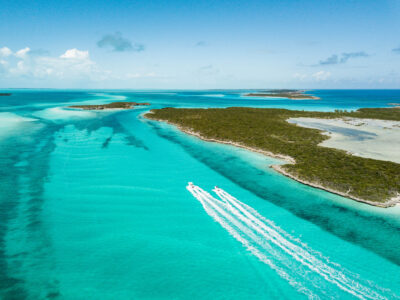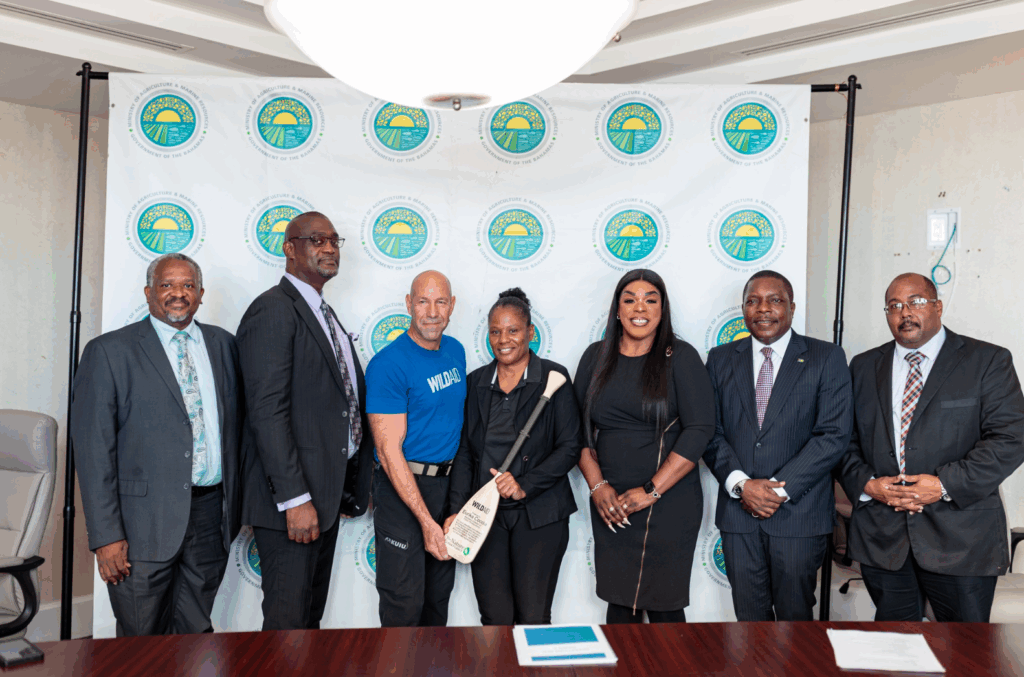
The Bahamas has taken a historic step forward in the fight against illegal, unreported, and unregulated fishing. After a year-long investigation led by Bahamian authorities and WildAid, three individuals have been convicted for their roles in running illegal foreign fishing charters. The case marks the first-ever three-year fishing ban issued under the country’s Fisheries Act and has resulted in nearly $300,000 in penalties and fees to date.
The Bahamas is an archipelago nation made up of 700 islands stretching across nearly a quarter of a million square miles of ocean — an area larger than the state of Texas. Within that span, there are five marine protected areas. Critically endangered species like the great hammerhead, smalltooth sawfish, and hawksbill turtle all depend on these waters, alongside thriving populations of fish that support local communities and economies. Protecting these ecosystems means safeguarding biodiversity, food security, and cultural heritage.
The case against the Highly Migratory
On January 27, 2025, authorities seized a 42-foot vessel named Highly Migratory after uncovering a pattern of illegal charter fishing. Operating out of Florida without licenses or permission, the vessel’s owner offered fishing trips to paying clients for $5,000 per day, directly competing with Bahamian businesses and exploiting a limited national fishery resource.
The operation revealed not only illegal fishing, but also dangerous misconduct. The captain encouraged clients to lie to law enforcement about the nature of the trips if they were contacted, and investigators discovered firearms and ammunition on board. Ultimately, the captain and two deckhands, all U.S. citizens, were arrested and pleaded guilty to possession of firearms, ammunition, and illegal fishing.
The case resulted in:
- A three-year ban from fishing in The Bahamas for each suspect — the first of its kind.
- The vessel bonded for $100,000.
- Approximately $200,000 in fines and fees paid by the suspects so far.
Building a stronger enforcement network
This enforcement success was the result of Operation Red Dawn I, a joint initiative coordinated by the Department of Marine Resources, the Royal Bahamas Police Force, the Defence Force, Customs, WildAid, the Office of the Attorney General, and The Nature Conservancy. WildAid drafted the operations plan, trained and guided law enforcement teams, and provided on-the-ground support from inception to arrest.
The results have been felt far beyond this single case. Local Bahamian businesses, long under pressure from hundreds of illegal foreign charters, have welcomed the arrests. By leveling the playing field, these convictions help ensure that fishery resources remain sustainable for local communities and passengers on sport fishing charter boats remain safe.


Operation Red Dawn II
In a press conference held on September 22, the Ministry of Agriculture and Marine Resources announced Operation Red Dawn II, expanding the effective, collaborative enforcement model. Already, this second phase has led to the seizure of a 38-foot vessel and two additional arrests.
“This operation was launched to address the persistent problem of unlicensed foreign fishing charters operating illegally in Bahamian waters,” said Jomo Campbell, minister of agriculture and marine resources. “Such activities undermine the licensed Bahamian operators, deprive the Government of critical revenue, and are threatening long-term sustainability of our marine resources.”
For WildAid’s marine team, this outcome is proof of what’s possible when training, planning, and commitment come together: real accountability and real consequences for those who threaten marine resources and fail to comply with laws and regulations.
“Both of these investigations are the result of a collaboration under the Marine Action Partnership (MAP), where multiple agencies are implementing the training, investigative strategy, and other resources provided by WildAid to combat poaching,” said Mike Cenci, WildAid’s senior enforcement advisor. “The MAP initiative has demonstrated that together, each achieves more.”
Illegal fishing undermines fishery management, threatens biodiversity, and strips local communities of income and food security. But with strong enforcement and continued collaboration, countries like the Bahamas are showing that real progress is possible.
These achievements and this impact would not be possible without generous support from partners like the Mary Gard Jameson Foundation, for which WildAid is deeply grateful!
Stay in touch and get the latest WildAid updates.
SIGN UP